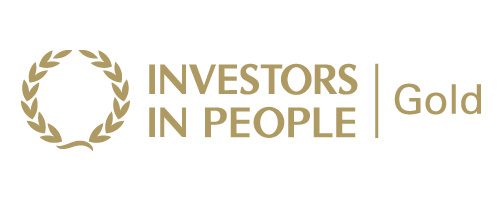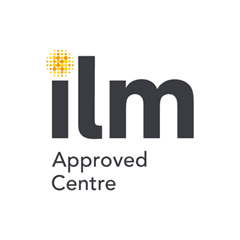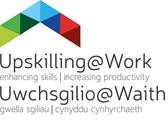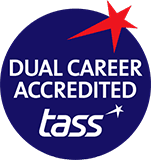Apprenticeship Programmes in Plumbing
Employers have an enhanced role in the delivery of the new apprenticeship suite of qualifications in the construction and building service engineering sector.
Your role
- You will work with and support learners throughout their apprenticeship
- Attend an initial meeting with the training provider to identify the range of tasks required to meet industry competency statements, work-based project and completion of ‘Form A Employer Confirmation’ and ‘Form B Employer Checklist’
- Provide opportunities for the learner to carry out the activities outlined within the occupational competency statements set by industry
- Meet with training providers to review and record the learner’s progress throughout their apprenticeship
- Support the learner in gathering evidence to confirm proficiency in the activities that they carried out
- In limited circumstances simulated activities can be arranged on-site/in the workplace by the employer to gather evidence
- Support the learner in documenting their evidence, e.g. through a journal or diary
- Confirm when the learner has met the required standard for the trade and is ready to progress to their final assessment (the professional discussion), confirmed by completing ‘Form A Employer Confirmation’ and ‘Form B Employer Checklist’
- Support the learner in applying for their relevant industry competency card
Our role
- We will work with employers to guide and support the learner throughout their journey
- We will attend an initial meeting with the employer to identify the range of activities required to meet industry competency statements and the work-based project
- Ensure the quality of ‘Form A Employer Confirmation’ and ‘Form B Employer Checklist’ which will allow the learner to progress onto their final assessment, the professional discussion
- Ensure evidence gathered by all of our learners is appropriate and complete by carrying out and recording internal quality assurance sampling (confirmed by signing/dating section 3 of ‘Form A Employer Confirmation’)
- Support the employer and learner in documenting the evidence, e.g. a journal or diary, as referenced in the occupational competency statements
Requirements of evidence
Compiling the learner’s evidence should only start once the employer is satisfied the learner is consistently working at or above the criteria set out in the occupational competence statements. That is to say they are deemed to have achieved occupational proficiency. In making this decision, the employer may take advice from the learner’s training provider. The overall decision must ultimately be made the the employer(s).
- Learner must document their evidence during the on-programme period of the apprenticeship
- It must contain enough evidence, gathered within the workplace, to demonstrate the occupational competency statements
- It will typically contain 15 pieces of evidence, and could take the format of a journal or diary
- Evidence must be mapped against the occupational competency statements
- Evidence sources might include (this is not a definitive list):
– Workplace documentation, for example job cards/job sheets, check sheets/quality check records, accident records, equipment check/maintenance records
– Annotated specifications, e.g. drawings, cutting lists, work instructions
– Annotated photographs
– Video clips (10mins max.) supported by clear timestamps detailing when key pieces of evidence occur - Evidence should not include any methods of self-reflection or self-assessment
- Any employer contributions should focus on direct observation (e.g. witness statements) of proficiency rather than opinions
- The evidence must be authenticated by an employer and have been recently gathered. There should be enough evidence documented to show the site based performance statements have been met
- The evidence provided must be valid and attributable to the learner; the documented evidence must be complete. The employer’s signature on the confirmation document confirms this is the case
To be eligible for our Plumbing Apprenticeship programmes, you will need to be:
- Employed within the building services sector (with evidence of contract of employment)
- Aged 16+
- Living and working in Wales
In addition to above, applicants will need to hold one or more of the following, or equivalent qualifications, at or above level of the list below:
- Foundation in Construction and the Built Environment qualification at level 2
- Progression in Building Services Engineering qualification at level 2
- Welsh Baccalaureate National Diploma
- GCSE grade A-C in each of the following: a communication subject, maths and either a science or technical-based subject (e.g. Design & Technology, Electronics etc.)
- GCSE grade A-C in WJEC GCSE Built Environment
- Level 2 ‘Access to Building Services Engineering’ qualification and/or equivalent qualifications
Applicants will also be required to attend a successful interview.
To allow an Apprentice to start their programme, we will first need to carry out the necessary Health & Safety checks, in accordance with Welsh Government Code of Practice. This means we will need to evaluate your company’s management of health, safety and welfare, to ensure learning/work is undertaken in an acceptable environment with risks managed.
We will need to see evidence of the following documentation, alongside a short site visit:
- Adequate Employers Liability Compulsory Insurance and Public Liability Insurance
- Evidence of any relevant maintenance records (such as PAT testing, lighting equipment service records etc.) where applicable
- Fire precautions
- First Aid provision
- Health & Safety policy
- Risk assessments including Fire and COSHH (where there are more than five employees)
The college will monitor Health & Safety to test the implementation of the employer’s Health and Safety management system throughout the Apprenticeship programme.
Programme Description
The EAL Building Services Engineering (Level 3) – Plumbing and Heating qualification will need to be taken as part of an apprenticeship. It allows learners to demonstrate the range of their occupational knowledge, skills and understanding in plumbing and heating.
It is aimed at learners who have either achieved the Level 2 Foundation in Construction and Building Services Engineering qualification or will be completing the Foundation learning and assessments while in their apprenticeship. This qualification will enable learners to go on to study other Level 3 Building Services Engineering qualifications relevant to plumbing and heating.
Programme Features
As an apprentice you will be allocated an assessor who will oversee and support you through your journey on this framework, working closely both with your employer and tutors at college.
You will be expected to attend college to learn underpinning knowledge. Assessments will also take place in college and the workplace on a regular basis. This course is both theory and practical based.
Programme Content
Learners will develop their knowledge, skills and understanding for the Plumbing and Heating trade, as contained in the National Occupational Standards.
Learners will also complete two ‘core’ units covering the building services engineering sector and practice in the sector within Wales.
The qualification will be portable throughout the UK and is aimed to develop learners’ ability to meet the demands of the building services sector in Wales.
Progression and Employment
On completion, the qualification will provide learners with the skills and knowledge required for the learner to be capable of working in their chosen trade across the UK.
Method of Assessment
The qualification is designed to be completed on a part-time basis within an apprenticeship. Before the assessments are taken, learners must first demonstrate their performance and capability to the satisfaction of their employer.
The different entry points onto this qualification mean the assessment routes vary. The learner may also have to take the Level 2 Foundation in Construction and Building Services Engineering learning and assessments while on their apprenticeship if not already achieved.
If the learner takes this level 3 qualification as part of their apprenticeship without first achieving the foundation qualification or progression qualification, they must successfully complete:
- Three externally-set, externally-marked multiple choice tests
- One externally-set, internally-marked project
- One internally-marked guided discussion
- One employer-set, internally-assessed project covering their chosen trade area
- One externally-marked professional discussion
If the learner takes this Level 3 qualification as part of their apprenticeship without first achieving the Level 2 Progression in Building Services Engineering in the same trade pathway they must successfully complete:
- Two externally-set, externally-marked multiple choice tests
- One employer set, internally-marked Practical Project in the trade area
- One externally-marked Professional Discussion
If the learner has achieved the Level 2 Foundation and Progression in Building Services Engineering in the same trade pathway they must successfully complete
- One externally-set, externally-marked multiple choice test
- One employer set, internally-marked Practical Project in the trade area
- One externally-marked Professional Discussion
As part of the Apprenticeship Framework, Apprentices will be required to complete one of the following optional routes:
- Fossil Fuel – Natural Gas (this aligns to IGEM IG1 and ACS assessment standards)
- Environmental Technologies (this aligns to MCS requirements)
Additional Costs
Students will be required to source and purchase their own personal protective equipment (PPE) which comprises of safety boots, safety glasses, hard hat and hi-vis.
You will need to provide your own stationery and there may also be additional costs if the department arranges educational visits.
Additional courses you may be interested in
Full-time Courses
Full-time courses available through the Coleg y Cymoedd core curriculum.
FE Courses
Further Education courses available through the Coleg y Cymoedd FE curriculum.
Business-Essential Training
Full and part-time courses available through Business Services. Many courses available funded.
Aberdare
Wellington Street
Aberdare
Rhondda Cynon Taff
CF44 8EN
Nantgarw
Heol y Coleg
Parc Nantgarw
Cardiff
CF15 7QY
Rhondda
Llwynypia
Tonypandy
Rhondda Cynon Taff
CF40 2TQ
Ystrad Mynach
Twyn Road
Ystrad Mynach
Hengoed
CF82 7XR















